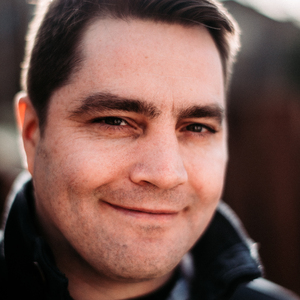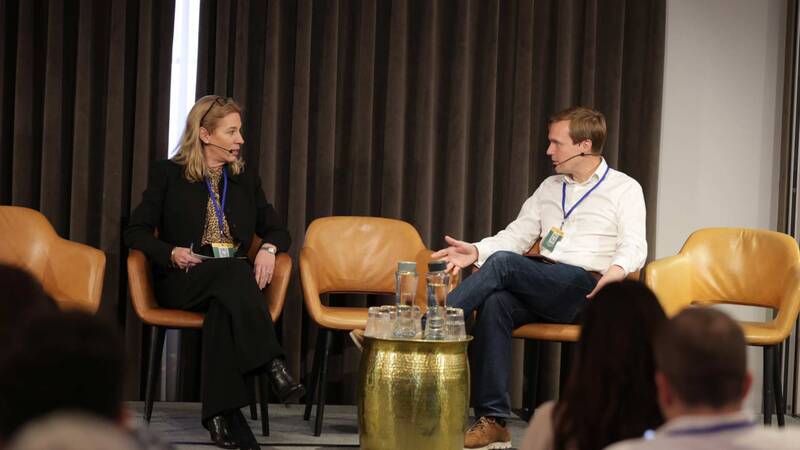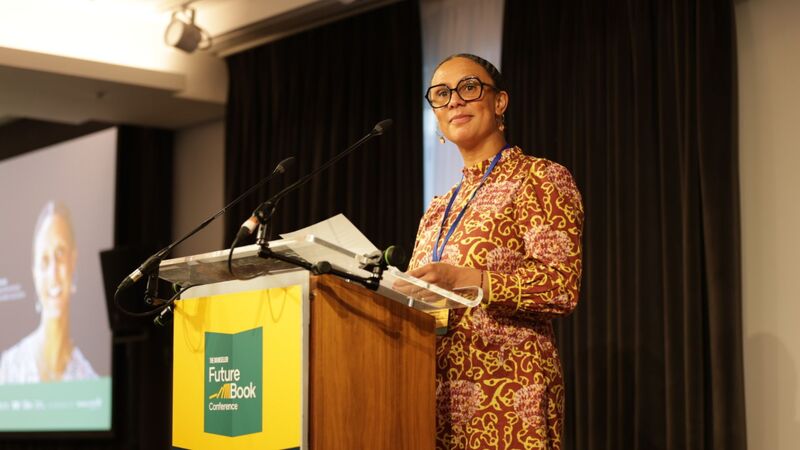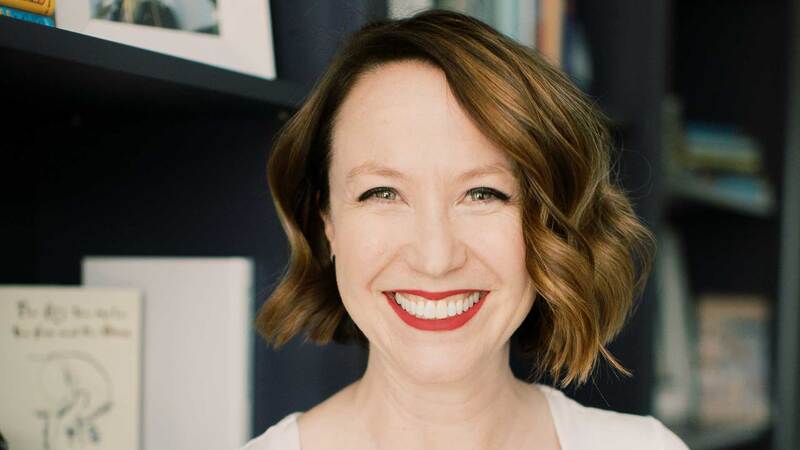You are viewing your 1 free article this month. Login to read more articles.
Self-publishing is an act of self-esteem
All authors need to drive their careers nowadays, so why not jump in the front seat?
I woke up one morning, early, and before my eyes had even adjusted, I had the phone in my face, checking my emails for any update.
Refresh, refresh, refresh. It had been six months since I sent out the first of my emails to agents, hoping to secure representation for my book. I’d sent it to more than 30 by this point (not a huge number in the grand scheme of things, but I’m picky, and so are they). Something clicked in my mind, as I sat there at 5.30 a.m., and my infant son began to cry, and I knew I’d barely have a moment to think again that day. As I got up and fed him, then myself, and headed into school to teach biology to teenagers all day, I felt a new, embryonic, neural pathway developing. Teaching is an all-consuming profession, but with young kids, and all the extras in my life, I was bursting at the seams, struggling to provide myself with the most basic of human needs.
I was at breaking point with my writing. For more than a decade I’ve been writing books for children and young adults, "good" books according to many, but nobody felt "strongly enough to champion my work". And that’s when it clicked.
I need to be my own champion. In writing, in life, in publishing.
I used to believe if you just worked hard, did the right things, and paid your dues, good things would come your way. I’ve reached a stage where I realise this is not true. But, as Molly Ker Hawn mentioned in her recent Bookseller article, the head of a publishing house told her: "We’re not publishing books; we’re publishing people."
I always believed it was a meritocracy, but I was naive. It’s a business. And if they don’t want to sell my product, I’ll have to do it myself. As a school teacher, I work with my target audience most days, and I help run a writing/book club where the kids tell you what they want, and write about books they’d like to read themselves. It’s often not what I see selling from Celebrity XYZ. I am not alone in my frustrations at this model, and so many of us have become disillusioned with the current traditional publishing model and process.
I’ve come to the conclusion that the only way you get what you want in life is to reach out and grab it. Nobody will come along and serve it to you on a golden platter (unless you’re a celebrity!). Like the characters in the books we write, we must be active, we must have a clear goal, and we must be striving towards it, from page one of our own stories.
We need to be our own heroes. Our own champions. And so, on that fateful morning, I decided that my path was going to change.
If you’re thinking that self-publishing might not be for you, because of all that extra work you have to do that isn’t writing-related, and that someone else is going to be your own champion, then think again. You’re going to have to drive your career yourself
I spent about a year researching and reading everything I could consume about publishing a book, both self-publishing and traditional (I think it’s important if you want to achieve the quality of traditional, you need to know how it works!). But it wasn’t a linear path. I changed my mind at least twice in a big way. I sent my next book to agents at one point, and got an offer of representation, and the promise of that book going to the London Book Fair, just two days after the offer, where it would be verbally pitched to editors, and a hasty pitch and synopsis handed out.
That was my ultimate test.
Was my resolve to be my own champion strong enough to resist this incredible offer being given to me? I knew if I said yes, I’d have to abandon my plans to self-publish, at least for the immediate future, still with no assurances that I wouldn’t be refreshing my emails at dawn hoping for a deal. That’s not to say that the agent in question wouldn’t be that champion I’d hoped for (she was lovely throughout) but ultimately I managed to hold my resolve and went all-in on the self-publishing route.
With my path now free of all tempting, low-hanging fruit, I suddenly felt my head clear, and my goals and objectives all aligned. I made a plan, an ambitious plan — short, medium and long term — with all aspects covered from setting up my own publishing company, to hiring the best people I know to help construct the very best novel I could release.
I did courses on self-publishing. I stayed up until 2 a.m. with the sick kid(s), listening to podcasts and reading guides. I spoke with an agency to negotiate working with a top cover illustrator on the artwork for Ghosts of Mars. Books are judged by their covers — I don’t care what anyone says, this is the hill I will die on. So it had to not just be good, but be outstanding, and Jen delivered.
I wanted to make sure everything, from the cover, to the editing, to the marketing and publicity, it was all done in a similar way to a traditionally published book. I was lucky to have received a plan for publicity from a lovely publicist, Fritha Lindqvist, when I was working on something else a few years ago (2018) and I used this as a template, updating it where I felt it needed for this time.
The two Emmas (Read and Finlayson-Palmer) edited it to within an inch of its life, constantly challenging me to push myself beyond my comfort zone through all five rounds of edits, mirroring the developmental (x2), line, copy and proof stages, and ultimately making it better. I got cover quotes from several lovely authors, including Vashti Hardy, Annabel Steadman and Rachel Faturoti.
I sent out advance reader copies, and I’ve put my name forward for every opportunity out there, helped massively by my good friend, Florianne Humphrey, and I’ve utilised all of my own strengths in a million, small ways.
The most interesting thing for me has been the parallels with traditional publishing. So much of what I’ve done has echoed with a couple of my good friends who are going down that path. In fact, in many ways, as I hear their frustrations with covers, timelines shifting, poor advances and royalties, I find myself feeling fortunate in many ways. Though not on the day they hand in their final edits, and can take it easy. This is the point where the work is just getting started for us selfies! While their publicity and marketing people get working, I have to lead those areas myself. But the frustration is short-lived.
When I chat to some of my already traditionally published friends, they tell me of how they still have to do loads of marketing work. Of how staff at their publisher are so overworked and underpaid, that individual time for their book is in short supply. Publicising and marketing your own book is not just for the self-published now, it’s for us all. Almost every writer does not have a huge budget behind them, and so in many ways, the skills that I have learned/continue to learn are ones that traditionally published authors really need to learn, too.
Self-publishing is for anyone, but not for everyone. It has been exhausting, but exhilarating. Tiring and terrifying. I’ve felt empowered for the very first time in my whole time as a writer. You can feel so small, and so insignificant, for so long when you’re sending your work out there, and it’s not going well. It can be an utterly miserable place for us. But self-publishing has ignited a flame of autonomy inside of me that has been partly dowsed a few times, but ultimately continues to burn brightly.
But has it been worth it? Every single second!
Well, except that time I accidentally pressed publish back in September, four months before the book was due! A lesson learned. Actually, a hundred small lessons were learned.
Being your own champion is simple, but it’s not easy. It empowers you beyond measure, but weighs heavily on you. The responsibility of project managing many people, balancing finances, while still trying to isolate that creative side of the brain, to finish your edits, and write the next book, can be overwhelming, but if you have the self-discipline and determination to do it, and you can overcome small bumps in the road, there’s a feeling waiting for you at the end which is priceless.
There’s a message waiting for you from someone saying they loved your book, or a five-star review, or a photo of a child reading your book with their thumbs up. And there’s that parent who tells you that their child, who struggles with voices in their head, relates it to the AI consciousness in your main character’s head, and it helps them.
And that, my friends, makes every single moment worth it.
So if you’re thinking that self-publishing might not be for you, because of all that extra work you have to do that isn’t writing-related, and that someone else is going to be your own champion, then think again. You’re going to have to drive your career yourself. And so you have to decide — do you want to be at the steering wheel, with the power and autonomy, or sitting in the back seat, hoping someone else will get you to the right place?





















